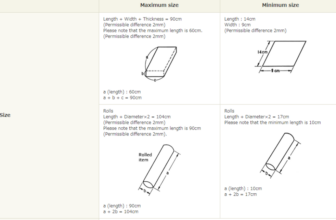
I. Differences Between Resellers and Distributors
Reselling and distributing have become two of the most prominent business models globally. Additionally, resellers in dropshipping business play a crucial role in the growing e-commerce market. Dropshipping has gained immense popularity as an efficient strategy for selling products without managing inventory. However, many people wonder about the key differences between resellers and distributors.
A reseller is an individual or company that purchases merchandise and resells it to end customers, making a profit from price differences. In contrast, a distributor acts as an intermediary between manufacturers and retailers, often performing a role similar to wholesalers. Dropshipping, as a business model, welcomes both resellers and distributors.
This article will clarify the differences between resellers and distributors while offering guidance on starting a dropshipping business. Moreover, we will discuss the role of resellers in dropshipping business and how they can benefit from it.

II. Key Differences Between Resellers and Distributors
Although resellers and distributors share similarities, they also have distinct differences that influence their profitability and operational processes.
| Criteria | Resellers | Distributors |
|---|---|---|
| Profit Margins | Yes | Yes |
| Less Control by Suppliers | Yes | Yes |
| Self-Management | Yes | Yes |
| Planned Sales | No | Yes |
| Service-Oriented | No | Yes |
| Lower Earnings | Yes | Yes |
| High Inventory Risk | Yes | No |
| Commitment Level | Low | High |
| Higher Capital Requirement | No | Yes |
III. Choosing Between Reselling and Distributing
From the table above, it’s evident that distributors have a more structured approach, making them ideal for newcomers to international business. Distributors can access better support services, such as logistics and product selection, to streamline their operations.
On the other hand, resellers in dropshipping business are better suited for established businesses with diverse product lines. This model helps companies expand their reach across different markets.
Ultimately, both resellers and distributors can leverage dropshipping to enter the global market. However, distributors may have an advantage in structuring and scaling their businesses effectively.

IV. How to Start a Dropshipping Business
Dropshipping is a viable e-commerce model for individuals and businesses looking to sell products without managing inventory. Whether you’re a reseller or a distributor, partnering with a reliable dropshipping platform can simplify the process.
1. Technical Support
A reputable dropshipping platform should provide strong technical support to resellers. Advanced technology, such as an API system, allows users to bulk upload product descriptions and images efficiently.
For example, TinyDeals offers an API system that enables seamless order fulfillment. This system automatically processes orders from platforms like Amazon and Wish, ensuring hassle-free product delivery to end customers.
2. Inventory and Supply Management
Resellers often struggle with inventory and supply chain issues. However, by joining a trusted dropshipping platform, resellers can minimize these challenges.
Dropshipping eliminates the need to carry large inventories, allowing resellers to focus on sales. Many platforms collaborate with multiple suppliers, ensuring product availability. For instance, TinyDeals partners with over 1,000 brands and 10,000+ suppliers to maintain consistent stock levels.
3. Customer Support and Training
Many dropshipping platforms offer training programs for resellers. These training sessions cover product selection, store promotion, and sales analysis, helping resellers optimize their business strategies.
Additionally, platforms like TinyDeals assist resellers in registering on third-party marketplaces like Amazon, eBay, and Wish, expanding their market reach.
V. Final Recommendation
Both resellers in dropshipping business and distributors can thrive in the dropshipping industry. However, each model has its strengths and weaknesses.
By partnering with a reliable dropshipping platform, resellers can overcome common challenges such as inventory management and order fulfillment. Dropshipping provides a low-risk opportunity for resellers to expand globally without major upfront investments.
If you’re considering a global dropshipping business, collaborating with a trusted platform can enhance your success and profitability.




![Finest HEPA Air Purifiers to Promote On-line + Wholesaler & Dropshipper [China/US/UK]](https://www.tinydeals.net/blog/wp-content/uploads/2025/01/image-165-1024x1024-336x220.png)

